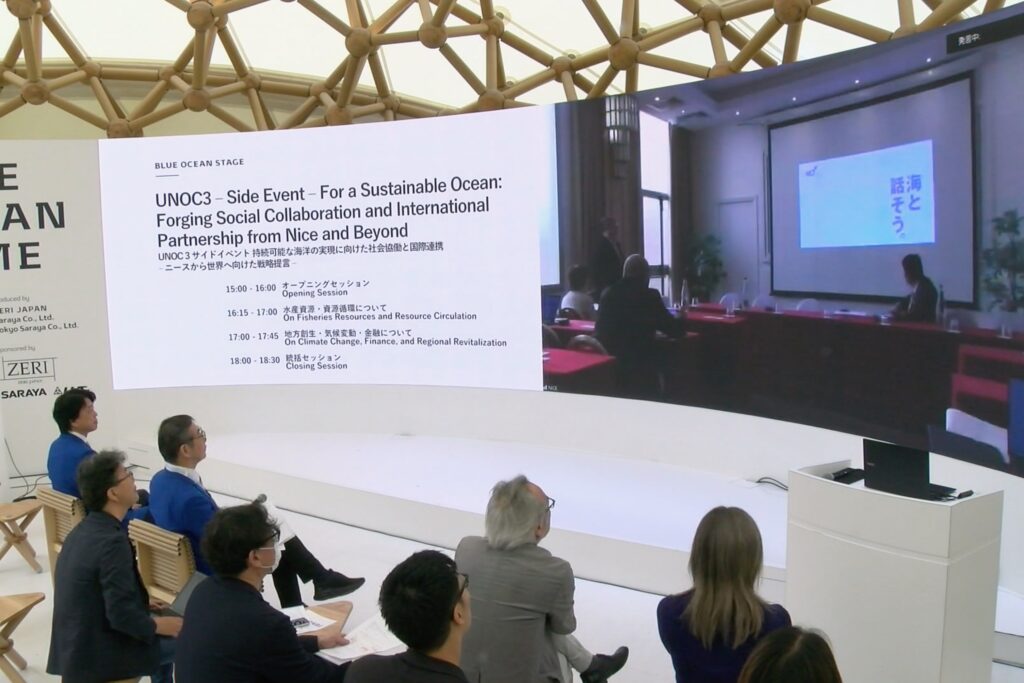
June 9th (Mon) to 13th (Fri). BLUE OCEAN DOME sent a staff member to the site to deliver the state of the conference in real time to the Expo site, and interviewed blue leaders from around the world. The speakers at each talk session looked back on the themes taken up at the UN Ocean Conference and engaged in lively discussions on specific efforts that will be required in the future to realize a sustainable ocean.
The 3rd United Nations Ocean Conference: On-site Studio Talk
During the UN Ocean Conference, from June 9th (Mon) to 13th (Fri), the conference venue was connected to BLUE OCEAN DOME via live broadcast and was open to the public. At the conference, advanced initiatives from Japan and other countries were introduced on important issues such as marine science, marine pollution countermeasures, sustainable fishing, marine economy, and climate change. Yusuke Saraya, Chairman of ZERI JAPAN, took to the stage from BLUE OCEAN DOME and proposed the use of quick-freezing technology for caught fish and measures against plastic waste in the Tsushima region, emphasizing the importance of Japan and the world working together to present concrete solutions.
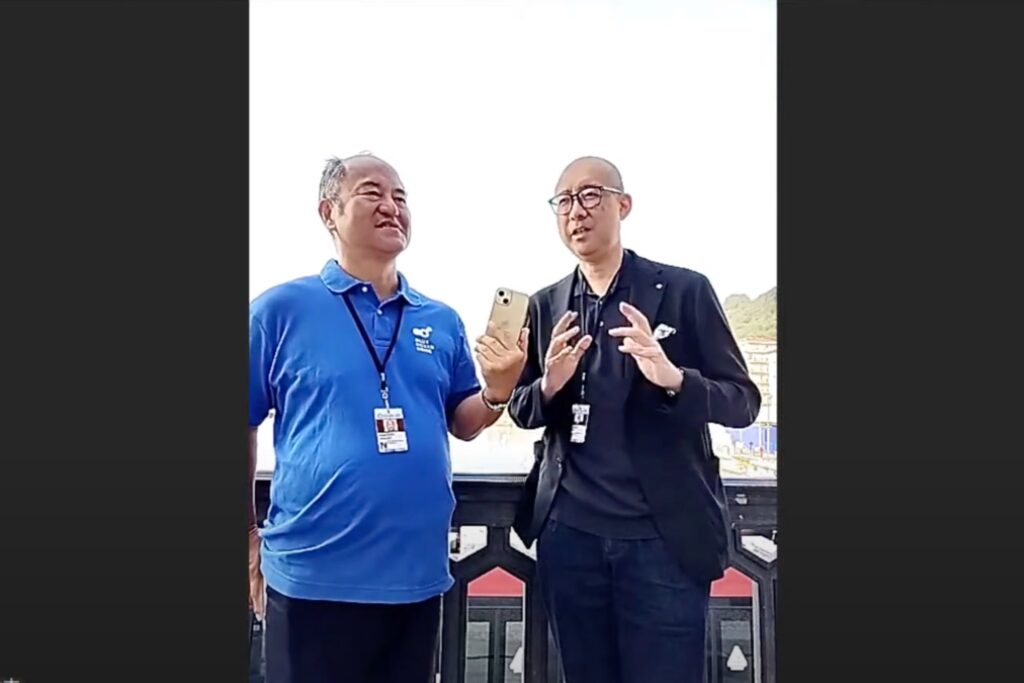
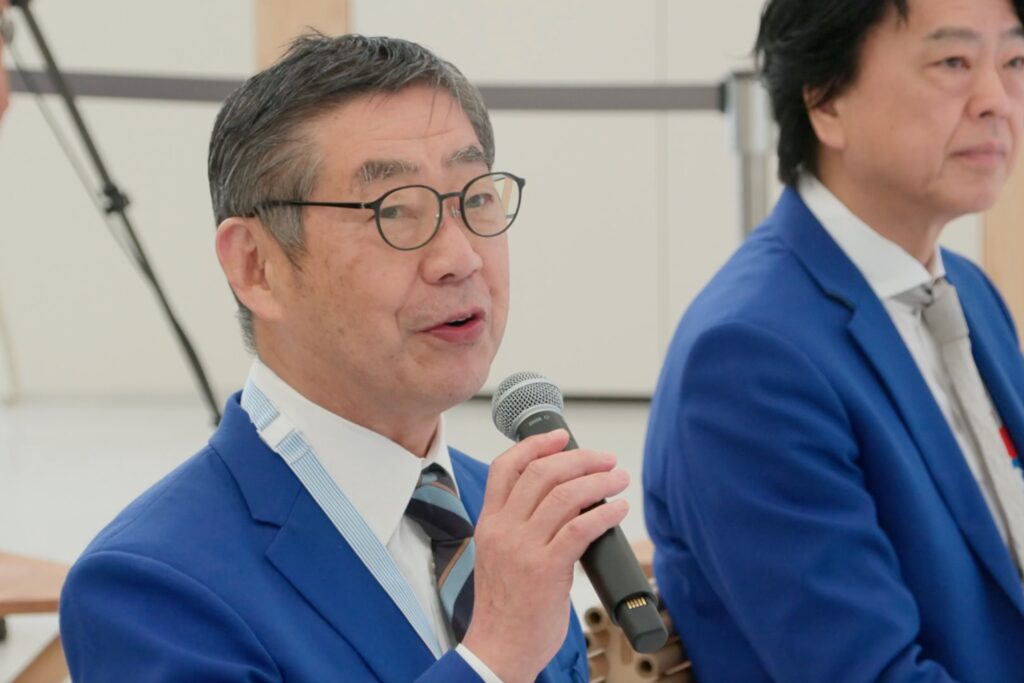
The relationship between the sea and the lives of Japanese people – from the world of mythology to the age of AI
On Tuesday, June 10th, from 4pm, Professor Kawaguchi Mariko of the Graduate School of Social Design at Rikkyo University gave a lecture on the theme of “Japanese Life and its Relationship with the Sea.” Kawaguchi explained that Japan is a maritime nation made up of many islands, and that of the approximately 3,700 species of marine fish in Japan, approximately 25% live in the waters off the coast of Japan. She went on to explain how rich biodiversity and marine resources have supported the food culture of the Japanese people.
In the second half of the lecture, Kawaguchi held a talk session with Yasushi Oka, deputy chief priest of Sumiyoshi Taisha Shrine, which enshrines the god of the sea. The session focused on the connection between Japanese mythology and the sea, as well as the similarities between the process of evolution of life and the creation myths of Japan, providing an opportunity to consider the relationship between the sea and humanity from various angles.
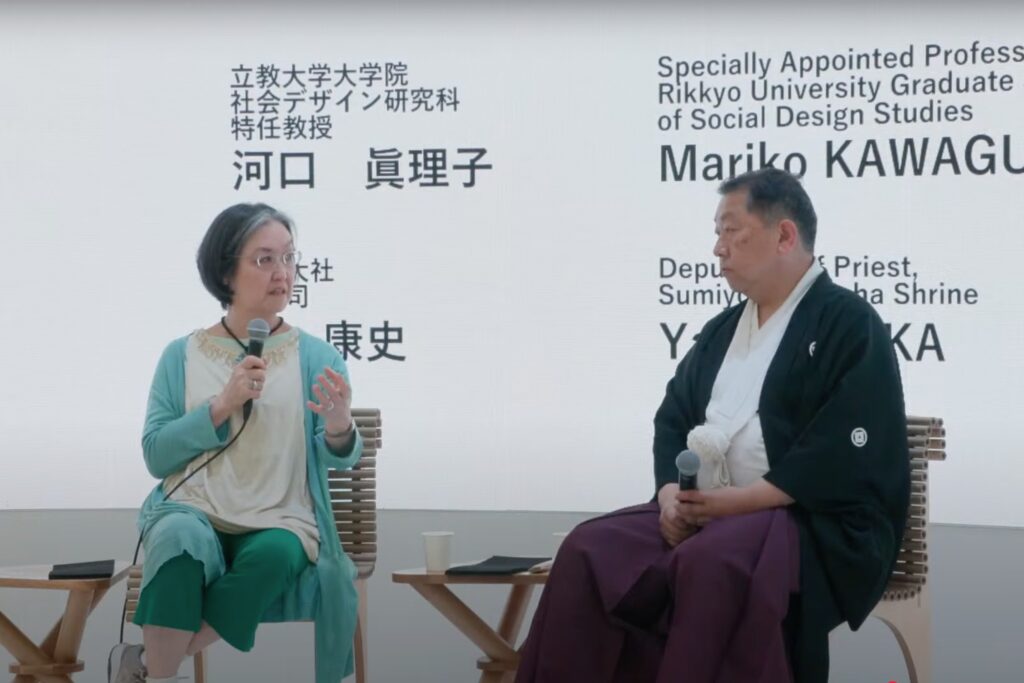
The ocean, the future, and our actions
Following the conclusion of the UN Ocean Conference the previous day, Ms. Kaoru Nemoto, Director of the United Nations Information Centre, and Yusuke Saraya gave speeches at 3pm on Saturday, June 14th. Mr. Nemoto stated that this UN Ocean Conference achieved three results: a victory for multilateralism, a victory for science, and a victory for international law, and emphasized the importance of cooperation within the international community and discussions based on scientific evidence.
In the talk session held in the second half of the lecture, the two speakers exchanged opinions on the ideal business model that pursues profits while also addressing social issues. During the talk, Yusuke Saraya mentioned the importance of proactively disseminating information about Japan’s initiatives, including the practical example of a circular economy in Tsushima, to the international community.
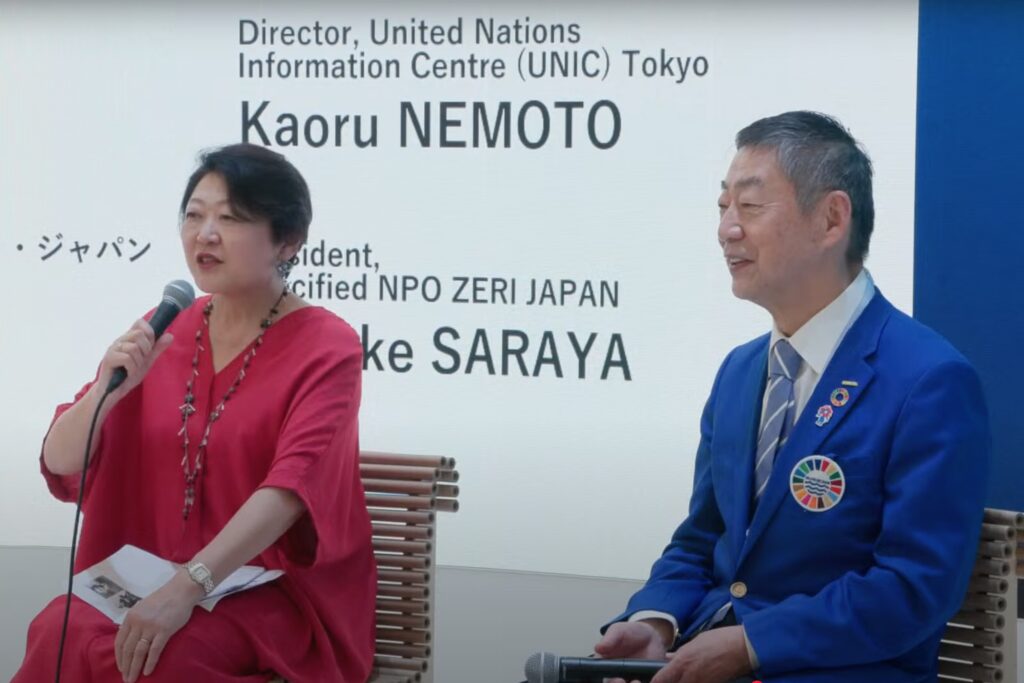
Between the blue sea and life
On Saturday, June 14th, at 5pm, Aoyama Gakuin University professor, biologist and author Shinichi Fukuoka gave a lecture on modern social issues, including marine environmental problems, centering on the fundamental principle of life known as “dynamic equilibrium.” Fukuoka explained “dynamic equilibrium” as the idea that while an organism is alive, decomposition and synthesis continue to maintain a balance, just as cells constantly die and are replaced by new ones. However, Fukuoka pointed out that human beings have gone against this natural system by producing large amounts of manmade materials such as plastics that are difficult to decompose, which has led to a heavy burden on the environment .
In the talk session that followed, Fukuoka and Yusuke Saraya sounded the alarm about the current situation in which non-degradable materials are mass-produced as a result of humanity’s excessive pursuit of efficiency and convenience. Furthermore, the two exchanged opinions on the importance of not only short-term efficiency, but also a long-term perspective that is efficient and in line with the principle of dynamic equilibrium, which contributes to the global environment.
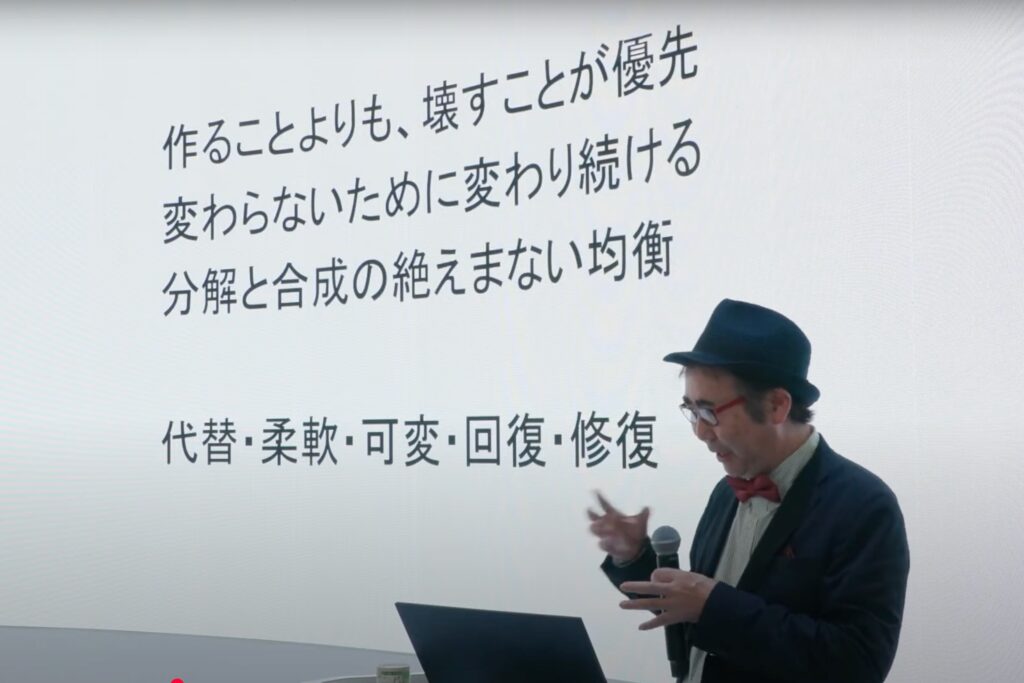
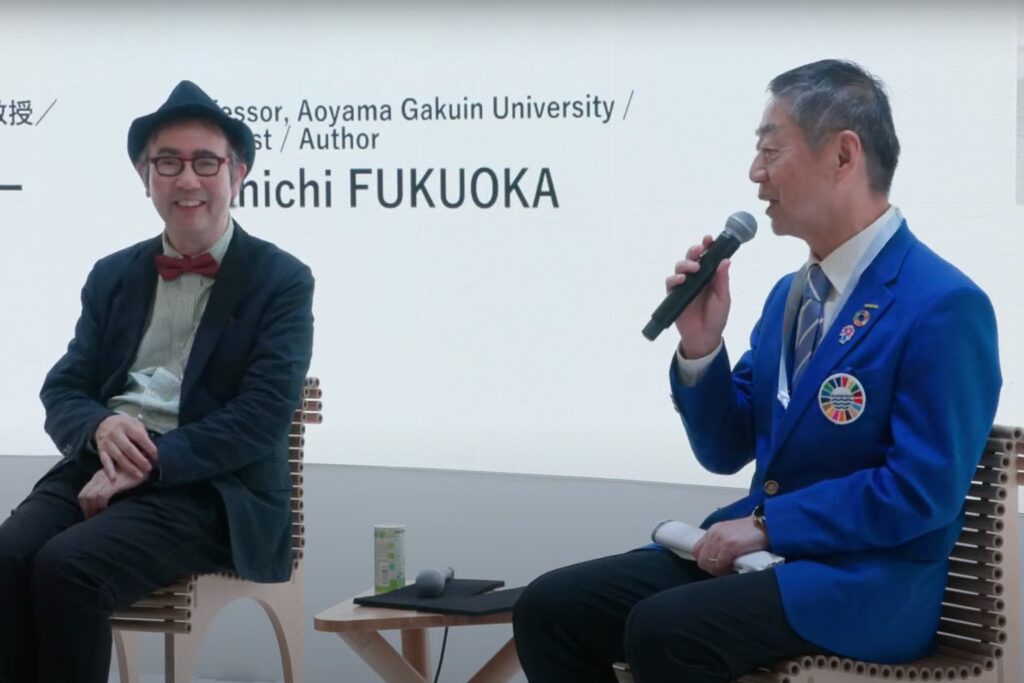
How to protect blue carbon and our rich oceans
On Sunday, June 15th, from 3pm, Junko Edahiro, professor at Shizenkan University Graduate School and representative director of Mirai Sozobu Co., Ltd., took the stage to give a lecture on key points for stopping global warming and the role of blue carbon.
The lecture outlined three elements necessary for global warming countermeasures: ” reducing CO2 emissions,” “capturing CO2 from the atmosphere,” and “fixing absorbed CO2.” In particular, Edahiro emphasized the importance of blue carbon, which is CO2 absorption by marine plants, and explained that the absorbed CO2 needs to be fixed securely by methods such as carbonization so that it is not released back into the atmosphere.
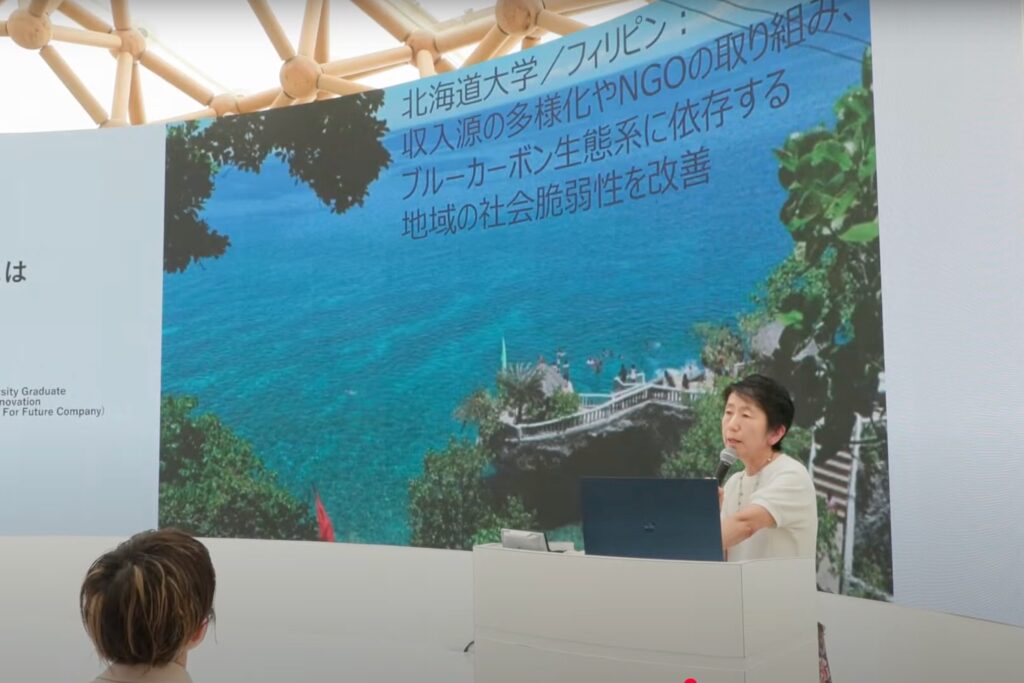
▼The event will be available to watch on YouTube’s BLUE OCEAN DOME official channel.
【#049】One Ocean Science Conference – Its Achievements and Challenges (ZERI JAPAN/Sasakawa Peace Foundation)
【#050】Blue Economy Finance Forum – Summary of Results and Future Outlook (ZERI JAPAN/Sasakawa Peace Foundation)
【#052】UNOC 3 Side Event Social Collaboration and International Cooperation for the Realization of a Sustainable Ocean – Strategic Proposals from Nice to the World (ZERI JAPAN/Sasakawa Peace Foundation/Nikkei Inc.)
【#053】UNOC3 – Private Sector Initiatives and Social Collaboration (ZERI JAPAN/Sasakawa Peace Foundation)
【#054】UNOC3 – Achievements, Challenges, and Future Prospects (ZERI JAPAN/Sasakawa Peace Foundation)
【#051】The relationship between the sea and the lives of Japanese people – from the world of mythology to the age of AI (ZERI JAPAN)
【#055】The Ocean, the Future, and Our Actions (ZERI JAPAN)
【#056】Between the blue sea and life (ZERI JAPAN)
【#057】How to Protect Blue Carbon and Our Bountiful Oceans (ZERI JAPAN)